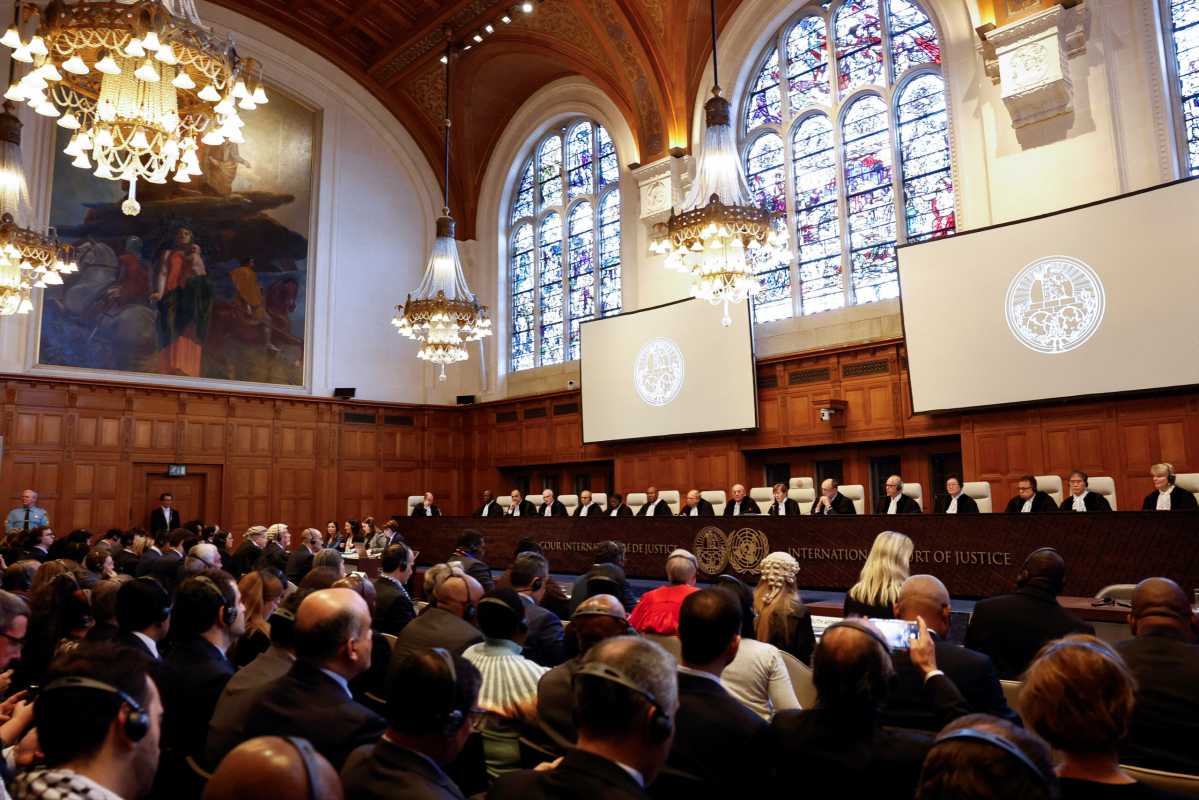World
Ugandan Judge Dissents in International Court of Justice’s Decision on Gaza

The United Nations‘ top court, the International Court of Justice (ICJ), issued an anticipated ruling on Friday regarding the ongoing military offensive in Gaza. While South Africa had accused Israel of committing genocide and sought a ceasefire through a court order, the ICJ opted not to mandate a ceasefire but instead ordered six provisional measures to protect Palestinians in Gaza. The majority of judges approved these measures, with one Israeli judge voting in favor of two of the six. However, Uganda‘s Judge Julia Sebutinde was the sole dissenting judge.
Julia Sebutinde, the first African woman to serve on the ICJ, is a distinguished judge from Uganda who began her judicial career at the court in March 2021. Born into a modest family during Uganda’s fight for independence, Sebutinde attended Lake Victoria Primary School and later Gayaza High School. She graduated from Makerere University and went on to earn a master of laws degree with distinction from the University of Edinburgh in Scotland. In recognition of her contributions to legal and judicial service, Sebutinde was honored with a doctorate of laws by the University of Edinburgh in 2009.
Prior to her tenure at the ICJ, Sebutinde served as a judge for the Special Court for Sierra Leone, where she presided over several significant cases, including that of former Liberian President Charles Taylor. In 2011, the court found Taylor guilty of war crimes and other charges, resulting in a 50-year prison sentence. Sebutinde gained attention during this trial when she withdrew from a disciplinary hearing after dissenting from an order requiring Taylor’s lawyer to apologize or face disciplinary action.
In the recent ICJ decision, Judge Sebutinde voiced her dissent, stating that the conflict between Israel and Palestine is fundamentally a political issue rather than a legal one. She argued that South Africa had failed to demonstrate the necessary genocidal intent by Israel, which would make the case fall within the scope of the Genocide Convention. However, many experts disagreed with her assessment, asserting that genocide is a legal matter and that both Israel and South Africa are parties to the Genocide Convention. Mark Kersten, an assistant professor at the University of the Fraser Valley specializing in human rights law, emphasized that historical and political contexts should not overshadow legal obligations.
The dissenting opinion of Judge Sebutinde does not reflect the official position of the Government of Uganda, as stated by Uganda’s ambassador to the United Nations, Adonia Ayebare. Ayebare expressed that Sebutinde’s ruling does not align with Uganda’s support for the Palestinian people, as she had previously voted against Uganda’s case on the Democratic Republic of the Congo.












